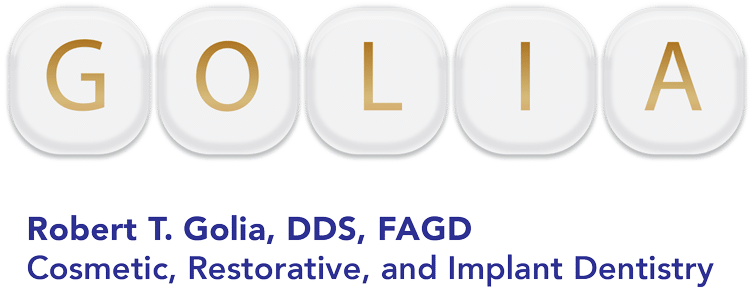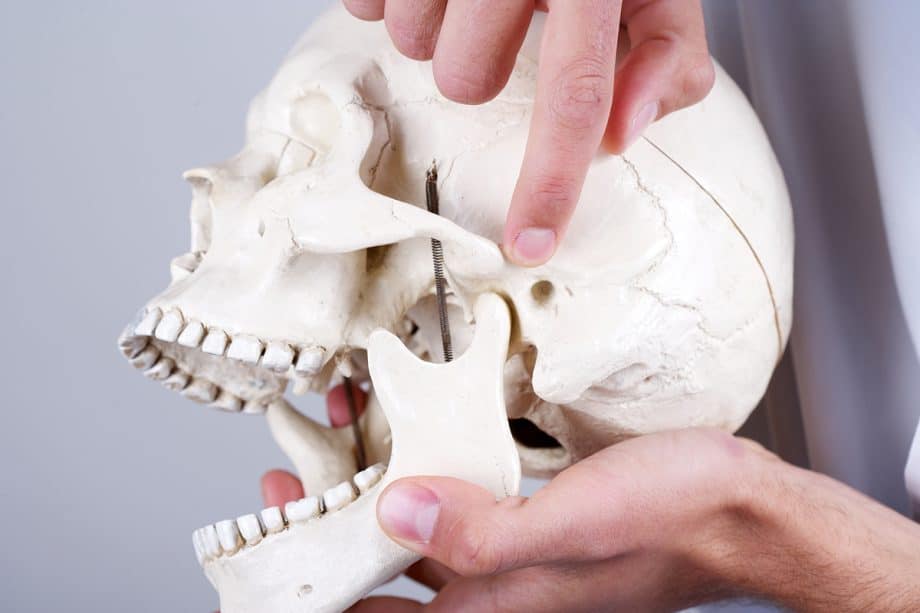TMJ disorder is a condition affecting the jaw, specifically in the location where the lower jaw connects to the skull. Patients experiencing TMJ pain and other symptoms often do not know who to call. Do you see your primary care physician, a dentist, or someone else for TMJ disorder? Here’s what you need to do to seek treatment for TMJ.
What is TMJ?
TMJ stands for temporomandibular joint, the location on each side of the face where the lower jaw connects to the skull. The TMJ is an unusual joint in that it rotates in small opening and translates forward in larger opening. The movement and the position of the lower jaw is controlled by multiple groups of muscles.
What is TMJ Disorder?
TMJ disorder occurs when the joint becomes irritated, inflamed, misaligned, or otherwise damaged. Clenching and grinding teeth can result in muscle spasms that prevent the jaw from moving as it should, resulting in difficulty chewing and other symptoms.
Symptoms of TMJ Disorder
The following symptoms commonly indicate TMJ disorder:
- Pain in the jaw
- Pain in the temple region of the head
- Pain in the ear
- Limited range of motion in the jaw (difficulty opening your mouth)
- Headaches
- Neck pain
- Popping or clicking sound when talking, chewing, yawning, etc.
- Muscle tension in the jaw and/or face
Causes of TMJ Disorder
TMJ disorder can be caused by any of the following:
- Strain. The majority of TMJ disorder cases are caused by muscle spasms. This may occur due to repetitive use such as clenching, grinding, chewing, talking, singing, etc. Chewing something particularly hard or chewy can strain your jaw.
- Malocclusion (Bad Bite). When the teeth and bite are out of alignment, such as a severe overbite, it can result in muscle spasms.
- Injury. A blow to the side of the face or jaw can cause the TMJ to become misaligned or damaged. The disc that cushions the joint can even slip out of place in some cases.
- Other health conditions. Arthritis and autoimmune disorders that affect the joints can cause TMJ disorder.
Experiencing TMJ Symptoms? Call Your Dentist
In addition to teeth, dentists are experts in the anatomy and physiology of the jaw. This makes us uniquely qualified to diagnose and treat TMJ disorder. Patients often don’t know who to call when experiencing TMJ symptoms, especially when they include ear pain. TMJ is commonly misdiagnosed as an ear infection because the pain often resonates in the ear canal due to its close proximity to the TMJ. Dentists can also analyze the condition and placement of the teeth, which can affect jaw alignment and function and indicate a problem.
Treatment for TMJ Disorder
When it comes to treatment for TMJ disorder, the first thing we recommend is ice and rest. Apply ice to the sides of the face where the TMJ is located. Rest your jaw as much as possible. Eat soft foods and refrain from talking unless absolutely necessary. You can also take over the counter pain medication, specifically anti-inflammatory medication such as ibuprofen.
If your symptoms persist after a few days or a week, contact Golia Dental. We can provide further treatment options to relieve your symptoms. In many cases we can identify the cause of the disorder and prevent it from recurring.
Call 203-248-7400 or contact us today to learn more and schedule an appointment.
Frequently Asked Questions About TMJ Disorder
Does TMJ treatment require surgery?
In most cases TMJ disorder can be treated without surgery. We always recommend other treatment options first, starting with the most conservative and moving gradually to more invasive treatments if necessary. Surgery is a last resort if all other treatment fails to provide relief.
Is TMJ the same as lockjaw?
Lockjaw is a term used to refer to tetanus, a bacterial toxin that causes the muscles of the neck and face to tense up and the jaw to lock shut. This is totally unrelated to TMJ disorder. However, severe TMJ disorder can make it difficult to open and close your mouth, which is why these terms are sometimes confused.

